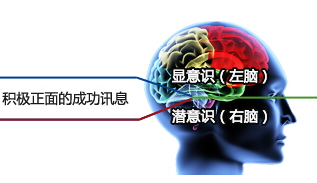(单词翻译:单击)
Words Prompt Us to Notice What Our Subconscious Sees
语言能帮助我们注意到潜意识里所看到的东西
Hearing the name of an object appears to influence whether or not we see it,suggesting that hearing and vision might be even more intertwined than previously thought.
听到某一物体的名字似乎会对我们是否会看到这一物体有所影响,这表明听力和视力比我们想象中的要更加紧密的联系在一起。
Studies suggest that words and images are tightly coupled.
研究显示,话语和图像是紧密耦合的。
What is not clear,says Gary Lupyan of the University of Wisconsin in Madison,
麦迪逊市威斯康星大学的加里·鲁普元说,
whether language and vision world together to help you interpret what you're seeing,or whether words can actually change what you see.
现在还不清楚语言和视觉是否共同来帮助你解释你所看到的,或者你所说的话是否能在实际上改变你所看到的东西。
Lupyan and Emily Ward of Yale University used a technique called continuous flash suppression(CFS) on 20 volunteers to test
鲁普元和耶鲁大学的艾米丽使用一种被称为连续闪现抑制技术(CFS)对20名志愿者进行了测试,
is whether a spoken prompt could make them detect an image that they were not consciously aware they were seeing.
该测试主要是研究口头提示是否能 帮助人们察觉到自己无意识看到的东西。

CFS works by displaying different images to the right and left eyes:one eye might be shown a simple shape or an animal,while the other is shown visual "noise".
CFS测试是通过对右眼和左眼展示不同的图像来实现的。例如,一只眼睛可能会展示一个简单的形状或动物,而另一只展示视觉噪声。
The noise monopolizes the brain,leaving so little processing power for the other image,making it invisible.
这种噪声会独占大脑,而为另一张图像留下少量的处理能力,使其不可见。
In a similar experiment,the team found that volunteers were more likely to detect specific shapes if asked about them.
在类似的试验中,研究小组发现,如果志愿者被问及某一特定的形状,志愿者会更有可能观察到这些形状。
For example,asking "Do you see a square?" made it more likely than that they would see a hidden square but not a hidden circle.
例如,当被问及“你看到正方形了吗?”这一问题可以使志愿者更容易看到隐藏的正方形而不是隐藏的圆形。
James McClelland of Stanford University in California,who was not involved in the work,thinks it is an important study.
加利福尼亚斯坦福大学的詹姆斯·麦克莱兰没有参与这项研究,他认为这是一项重要的研究。
It suggests that sight and language are intertwined,he says.
他说,这表明视觉和语言是相互交织的


